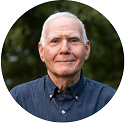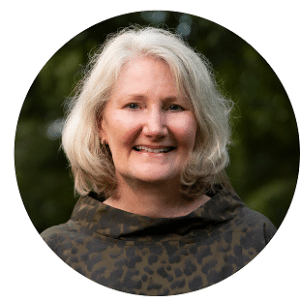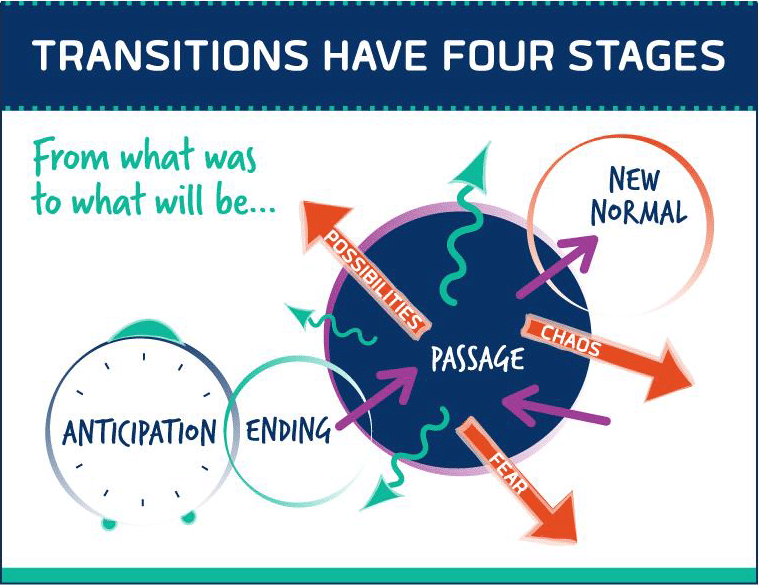This Month’s Theme —
Transitions
This month we offer a special treat into the lives of CK Members and the transitions we traverse. Our stories are not unique yet there are insights to gain from our shard life experiences.
Our hope is that our stories bring you illumination or comfort for a transition you or a loved one are facing. Perhaps our portraits will give texture and color to the stages described below.
Colman Knight Members Share:
On Transitions
Marc Berman
Retirement-Age Housing Transition
The contemplation of retirement transitions often generates thoughts about changing one’s primary residence. My wife and I started actively planning a move two years ahead of her retirement as a high-school guidance counselor.
Oftentimes people consider the words “downsizing” or “rightsizing.” We wanted to plan for the future: a residence with a master bedroom on the ground level, and to reduce the work associated with single family home ownership. Not just mowing the lawn or shoveling snow, but also letting go of managing unexpected home repairs as happens with older homes.
Many factors go into the considered options. Chronic health problems may indicate an independent living community with available assisted living or skilled nursing care. Some age-restricted communities (for even as young as 50) have a mix of single-family homes, duplexes, and row houses, as well as multi-story condominium buildings.
Location is a separate decision. Stay in your current town, relocate to your children, move to another country? If one can’t conclude the location decision, renting an apartment for a few years may help.
We deduced that we preferred a single-family condominium. We looked at condominiums, both duplex- and single-family, for well over a year before relocating from Acton, MA, where we lived for over thirty years, to Norton, MA. The decision turned out very well as our daughter got married and settled in Cranston, RI, a thirty-minute drive from Norton. The physical space was not downsized—we moved from a 2,800 sq. ft. home to a 2,600 sq. ft. condo.
It is superb to have the snow cleared right to our front door and garage, but condo living is not for everyone. One gives up control, whereas with single-family home ownership you make every decision. Condo associations have their own politics as well as the periodic special assessments. However, it is always great to move into a brand new home and not worry about repairs for ten or more years.
Marc’s lesson:
With all planning, and particularly when in transition, clarity about what matters (i.e. living on one level for ease into elderhood), make the search and final decision much easier. Knowing what we seek eliminates confusion and noise that takes our attention away from our goal.

Emily Thomas
Approaching Marriage
I am moving towards a transition from having been a single person until middle age, to a married person, in nine months. Primarily, I feel contentment about stepping into a new phase of committed partnership. I made the decision about five years ago that I wanted to live my life through a partnership, after having been happily single for decades. I embarked on a dedicated search for the right partner, and he showed up: shared values, common interests, we listen to each other and we laugh. I feel deep peace about exploring life through this partnership.
Other feelings that are arising are some fear and grief, about the end of my “independent” phase. Will I still be able to hear and follow my heart’s calls in the same way, in the chaos of intertwining my life with another middle-aged person who is fully engaged in life? I will need to take intentional space from time to time, reconnecting with my inner quiet voice to hear the deeper dreams.
I also wonder: what if I am so practiced in being single that being married is too great a challenge? Will I be able to show up for the relationship year after year? How could I possibly know that now?
There is the kaleidoscope of planning for a wedding next June, which could easily overshadow the centerpiece—our vows to each other. What do I want to commit to? What commitments do I want to receive? I am aware that my current stage of anticipation feels calm and centered now, but that inevitably, even with the most careful planning and consideration, marriage will entail stretching my perceived limits, uncomfortable growth, and unexpected events. This is where I plan to hang on to the tether of our commitments, with faith, dedication and trust.
My lesson is named in the last word I wrote, Trust. When I trust my intentions, vows, commitments, personal development and relationship are sufficient just as they are, I am able to be in each of these questions as Rilke wrote in his letters to a young poet, by living into the answers.
Gayle Colman
Is There Another Transition Phase?
Recently I was speaking to an acquaintance, someone I met through another colleague who wanted to connect with me about Somatic Finance. In our conversation, I was curious about her current situation, her choices, and the life she is creating now. I learned that she is starting over.
When she said those words, I felt a full-on stop, a quarter turn to the right, and a whole new scene. I recognized that our often used (and very helpful) phases in transitions do not fully reflect some transitions. A few transitions, and frankly this rarity may be increasing, are choppy, clunky and downright clobbering.
Our way of being in transition is typically fluid. We want it to flow because that feels so much better. Anticipating an ending and welcoming it as we step into our deeper and wider passage that opens up to our new normal (I still have a hard time saying normal). These are important phases to name and navigate in most transitions. We pause, breathe, calculate, prioritize, take a next step, make progress, pause again. We experience many feelings in each of these stages as you can note in our shared stories. These transitions become workable and yes, even enjoyable, as we guide you through these clearly identified stages of experience and growth.
What happens, though, if you are experiencing a starting-over transition? I’m not sure it is helpful to even call it a transition. Transition doesn’t hold the magnitude of a severed limb. Being in conversation with this impressive woman, with years of professional achievement and more, witnessing her emotional struggle, listening to her mental matrix, and feeling her anguish, Start Over illuminated a full stop and turn, as the only move forward.
David Whyte writes start close in, from his beloved poem of the same name. Maybe the first thing close in, is not a step, but rather a stop and a turn to the right, starting over.
Start close in,
don’t take the second step
or the third,
start with the first
thing
close in,
the step
you don’t want to take.
The lesson? Be kind, gentle and self-compassionate as your life unfolds. Our journey is truly an unknown. We don’t really know what each step will entail, even as planners with great plans.
Knight Colman
Anticipation to Ending
September 1st my life is going to change. My long-term, long-distance girlfriend is moving from Ohio to Boston for her PhD program at Northeastern. This transition started about a year ago, when she began applying to grad-school programs. At that time, I was grappling with wanting to be completely supportive, and also terrified at what it would mean to do long-distance for four more years. After a few grueling months of applications and interviews, she was accepted to Northeastern in Boston (one of two accepted out of hundreds! I have to brag a little!)
For the last six months I have been in the anticipation stage, imagining what it will be like with her living close. I feel a duality of it feeling so close and yet so far away at the same time. As the months have gone by, getting closer to September 1, my anticipation is building. I feel excited and joyous, because there is a deep confidence that this is my person, and in some ways this was also the world acknowledging and giving that feedback. It feels like we have navigated one of the most difficult parts of our relationship with joy and ease, that anything else that could come our way will certainly be manageable.
I am very grateful that Nikki will be located in Boston, and recently I have also been truly realizing that with her arriving, I am saying goodbye to a former life. I had a defined routine that helped me get through the Pandemic. I work out Tuesdays, Thursdays, Saturdays. I eat Chipotle for lunch, probably more than I should. I hang out with roommates and play pool. This routine has helped me navigate one of the hardest years of my life, and I also notice that I have a little bit of sadness, knowing that it will not be exactly the same anymore. Maybe sadness is the wrong word; more that I have a deep appreciation for what made up my life throughout this year, and I want to acknowledge that the routine helped me so much. Now in exactly 21 days (not that I am counting or anything), that routine is going to change, and I get to find the next routine that helps me navigate this next year.
I am moving from Anticipation to Ending. I want to continue appreciating my current lifestyle that will transition, while also looking forward to the next chapter of my relationship and my life.
Lesson:
Transition is an unique opportunity to expand our capacity to receive and recognize the goodness, magic and joy that is in our lives. Seeing from a space of abundance rather than narrow twists and turns allows us to experience more joy.
Rich Colman
Ending, Chaotic Passage,
and New Normal
As many of you know, in April 2017 my mother was in a car accident on April 7, and died on April 13 from her injuries. It was a great shock—it happened so fast.
I felt helplessness and fear, and could not access other feelings in the midst of the chaos. I was the health care proxy and the hospital stated when she was injured that I had to be reachable if they needed to do something. So, I could not fly down immediately, because I would be out of contact while on the plane. Then, when I did try to fly down, I discovered it was Spring vacation week and I could not obtain a flight, even if I flew to New York etc., to get me to Florida. Eventually, I did fly, with a stop in Baltimore. I spent more for that flight than any other to Florida. I remember feeling very angry at the airlines for taking advantage of my situation, which of course was paired with fear and deep sadness.
The chaos of dealing with her funeral, burial, attorneys (a possible lawsuit in regards to the car accident), and cleaning out her property was a blur. I was fortunate that my spouse and children were able to assist me with the task.
I now look back and realize that it was an extremely chaotic transition. There is still sadness around my mother’s death and my inability to reach her in a timely period. I am at peace with myself for having done everything reasonable to reach her before her demise.
The Lesson:
A new normal does not mean that all of the feelings and emotions experienced during a transition are gone. It means that you are now in a phase that you can attend to them with kindness and self-care. Some transitions, because of the intensity, etc., do not allow us to be with everything that we are going through. We do the best we can until we are able to face those feelings.
The phases of transition are described in more detail in this writing:
Four Stages of Transition

